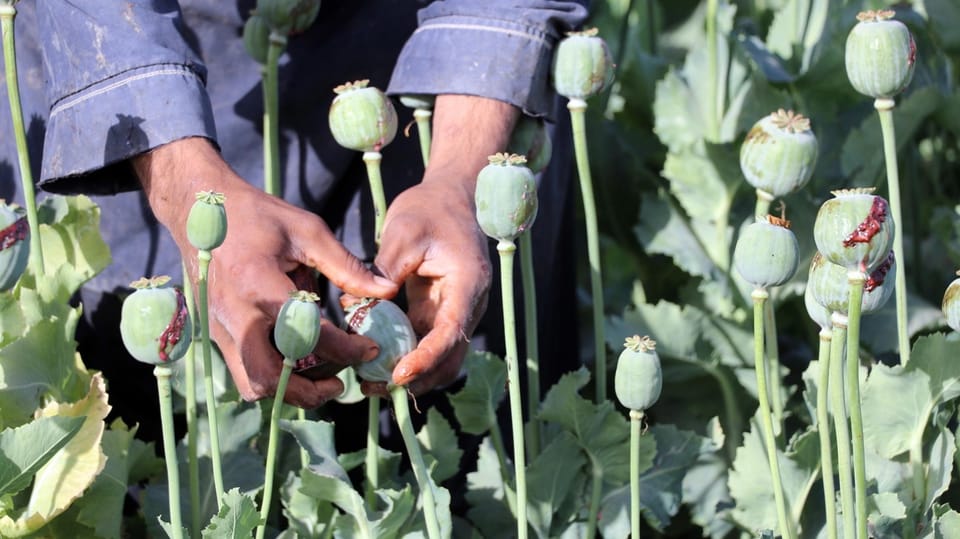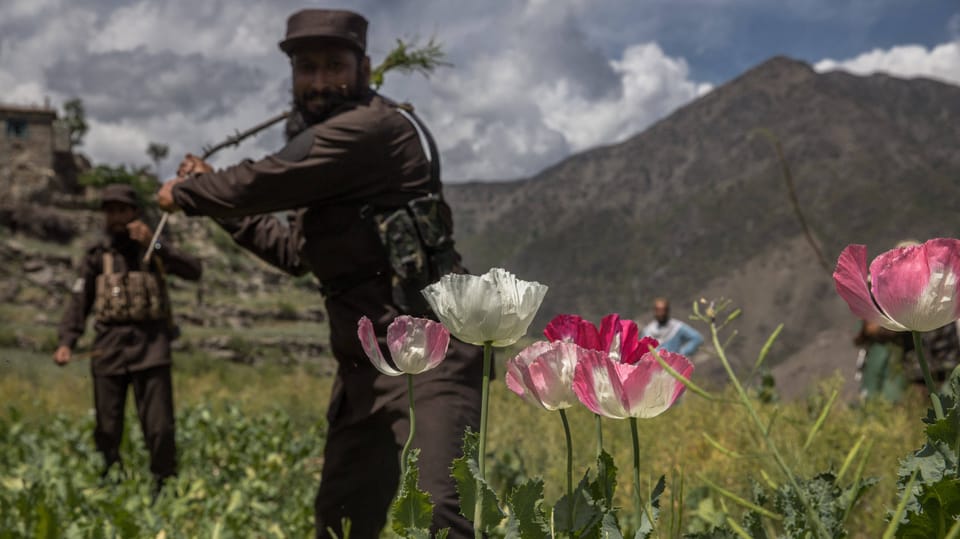Contents
Afghanistan almost completely bans the cultivation of opium poppies for opium within a year. What’s behind it?
Shortly after taking power almost two years ago, the Taliban banned opium cultivation. It was said at the time that this violated religious beliefs. The ban was not implemented immediately, and cultivation increased again by a third in 2022.
But now, according to research by the BBC based on satellite images, cultivation has fallen by 80 percent compared to the previous year. It’s the lowest level in Afghanistan since 2001. In the heartland of southern Helmand Province, which used to produce half of Afghanistan’s opium, almost no poppies will be planted this year. Instead, wheat is planted.
Legend:
In April 2022, over a year after the Taliban banned opium, the campaign to destroy Afghanistan’s poppy fields began. The picture shows soldiers destroying the plants with gags and guns shortly before the harvest begins in Kunar province.
imago images/Abaca/Oriane Zerah
How did the Taliban manage what the USA and other NATO countries had previously tried in vain for 20 years? In contrast to the Americans, the Taliban have had the country firmly in their grip since taking power, explains South Asia correspondent Maren Peters: “But at the time it was also down to the Taliban themselves, who spared the farmers’ fields in return for help. It worked well for a long time.”
Hundreds of thousands lost income
The ban on cultivation in April 2022 has different consequences for farmers: Farmers with their own land can make ends meet thanks to reserves and benefit from higher prices. Hundreds of thousands of landless field workers, on the other hand, have lost their income and can no longer buy food. This further exacerbates the ubiquitous hunger in the country.

Legend:
Opium, the basis for the drug heroin, is extracted from poppies.
Keystone/EPA/Stringer
Effects not yet foreseeable
According to Peters, it is too early to make any statements about the global effects of the cultivation ban, mainly due to the large stocks of poppy farmers and opium producers. The price of opium and heroin, while still at a 20-year high, has fallen in recent months. This also speaks for the large stocks: “For the time being, the heroin trade will continue as if nothing had happened.”
The Taliban are missing out on large funds from the cultivation of poppies, which they financed themselves. Their religious justification is also plausible, says Peters. Because the Taliban leaders would have to defend their legitimacy even against moderate forces in their own ranks: “This will only succeed if they not only introduce stricter rules, but also enforce them.”
Another reason for the ban, according to Peters, is the fact that the enemies of the Taliban, such as the terrorist group ISIS-K, earn much more money from drugs than they do themselves Hundreds of thousands of landless farmers were harmed.
Looking for recognition?
According to Peters, it is unlikely that the Taliban are also interested in international recognition with their harder line against poppy cultivation. This was never a condition for recognition by the Islamic Emirate. Moreover, individual governments decide on recognition and not the international community of states or the UN.
According to Peters, the bigger problem for many Western countries is that the Taliban regime of terror massively suppresses women’s rights and forbids Afghan women from working in international organizations. Autocratic countries like China or Russia, on the other hand, have their own agenda in Afghanistan, in which the fight against drugs does not play a role.

